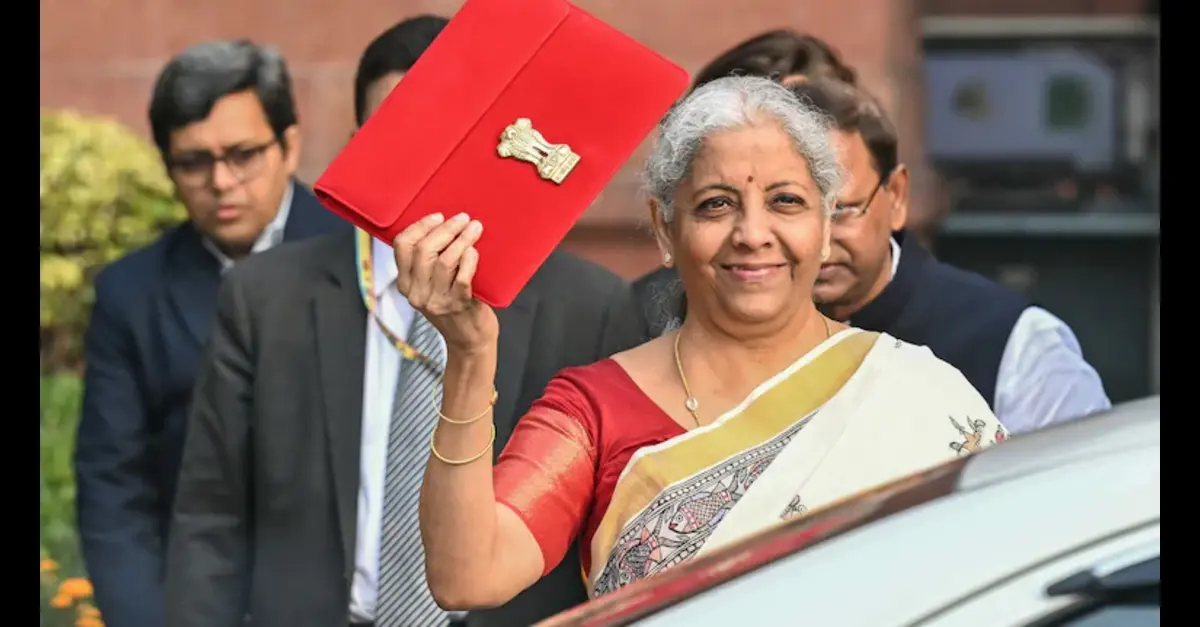Introduction
During global economic instability and a setting of geopolitical tensions and shifting trade regulations, Ms. Nirmala Sitharaman delivered the Union Budget of 2025 to focus on consumer growth, tax streamlining, and private-sector advancement. The government needed to balance economic expansion needs with budgetary regulations as they designed tax incentives for middle-class citizens and private investment groups.
Background
In the past year, the Indian economy faced challenges stemming from growth declines together with rising inflation and Trump-imposed trade barriers. Before the global trade system adjustments began the government took steps to defend local interests within economic protection and market competition. Public expenditure increases serve as the budget addresses multiple challenges while tax systems simplify and private enterprises receive emphasis.
Key Points:
- Boosting consumption
A tax refund program exempting persons who make less than ₹12 lakh per year from taxes applies to them.
The decision aims to create financial stability for middle-class groups while stimulating household spending within the nation.
Despite these measures, there are ongoing concerns about the imbalance of the budget while the capital expenditure has been reduced along with the reduction of the tax base.
- Private Sector and Investment Incentives
The government raised FY 2026 capital expenditures (capex) to ₹11.21 lakh crore while focusing on developing infrastructure across the country. According to the budget proposal, there will be a corporate restructuring process streamlining under the Companies Act 2013. EV battery as well as mobile phone battery manufacturing receive custom duty exemptions which support the ‘Make in India’ program to develop essential domestic industries. Under Section 44BBD of the tax system non-residents doing business in electronics and technology services can now utilize presumptive taxation for attraction of international operators.
- Focus on international investments
Sovereign wealth funds now have longer sunset provisions until 2030 which brings stability to international investors who want to invest in Indian infrastructure projects. Overseas investors will experience reduced costs in purchasing Indian securities because of the TCS elimination of products. SEP regulations now include changes that ensure exporting enterprises will not face unreasonable taxation.
- Rationalization and Tax Parity
The budget measures propose a restrictive period of eight years on letting tax losses flow after amalgamations.
The compliance duty is simplified through the removal of elevated TDS rates for non-reporting entities and higher TDS limits.
Digital asset investments remain heavily taxed because profit earnings are subject to a 30% rate and a 1% tax deductibility surcharge exists together with mandatory reporting which imposes restrictions on cryptocurrency investment.
The government has lowered prosecution procedures for TCS noncompliance provided companies pay their taxes before submitting their quarterly reports.
Recent Developments
The government has initiated infrastructure reform by increasing private sector participation. States are encouraged to present funding proposals through the India Infrastructure Project Development Fund (IIPDF) as part of the Public-Private Partnership (PPP) model promotion. The economic sustainability strategy of the government now places higher importance on urban consumption along with private-sector investment rather than direct government spending. The budget contains plans to establish a new Greenfield airport facility in Bihar in addition to expanding capacity operations at Patna airport.
Conclusion
The Union Budget for 2025 introduces a campaign to elevate economic performance which contains both middle-class tax reductions and changes to increase operational efficiency and investments. Budgetary restraint remains the primary challenge since the budget provides essential clarity for various sectors. Economic stability in upcoming years will determine the final success of this budget through its execution as well as its impact on the economy.
“PRIME LEGAL is a full-service law firm that has won a National Award and has more than 20 years of experience in an array of sectors and practice areas. Prime legal falls into the category of best law firm, best lawyer, best family lawyer, best divorce lawyer, best divorce law firm, best criminal lawyer, best criminal law firm, best consumer lawyer, best civil lawyer.”
WRITTEN BY: RESHMI CHAKRABORTY


